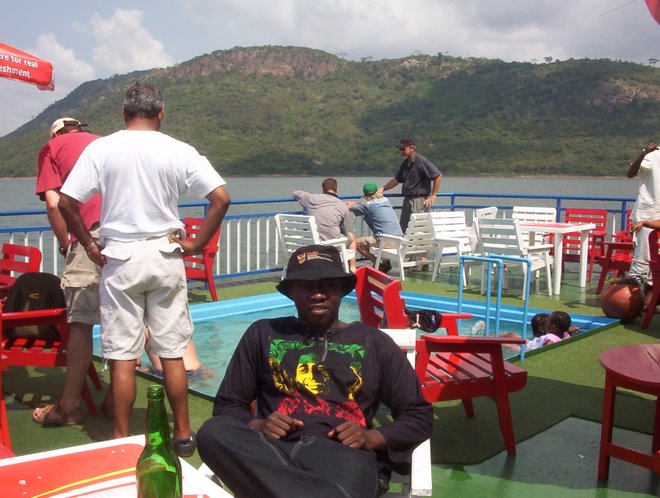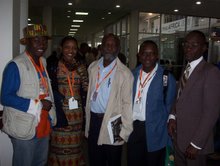Kumasi records rapid growth in hospitality industry
There is a rapid growth in the hospitality industry with the emergence of very large hotel facilities in the Kumasi metropolis within the last few years.
Out of a total number of 1345 hotel facilities in year 2005, the number has increased to 1595 at end of year 2008 with the inclusion of new facilities such as Yegoala, Golden Tulip Kumasi City, Sports Hotel, Joyflux, Noda, Splendour, Champion and Sunset Hotel just to mention a few.
This, according to stakeholders in the industry was a good sign of development, indicative of the fact that the sector was enhancing its capacity for a tourism boom.
According to data compiled by the Ghana Tourist Board, tourism is now the third-largest foreign exchange earner for the country, taking in more than US$1.2 billion in 2007 from about 600,000 visitors.
With President Barrack Obama’s recent visit to Ghana coupled with the notable period of political stability and the reinforcement of democratic principles and institutions within the country, tourism attraction was expected to be on the increase and it was therefore necessary for the hospitality sector to enhance its capacity to receive the numerous number of tourists who may troop into the country.
Kumasi on its part is Ghana’s second largest city and capital of the Ashanti region. It is an important commercial centre. Its central location, climate and safety, combined with Ghana’s increasing access to foreign markets, make Kumasi attractive to tourists and investors in a number of areas.
Overall, Kumasi and the Ashanti region noted as the home of Ghanaian culture holds the key to tourism development in the country.
Alongside the political advancement has come significant economic growth with a shift away from traditional agriculture towards the industrial and services sectors.
Hitherto, the vast majority of the investment in the hotel sector had been concentrated in the Greater Accra region with its benefits of proximity to the main sea ports and key government offices.
Nonetheless, there is increasing recognition in both political and business circles that investment needs to be encouraged outside of the Greater Accra region.
As such Kumasi, through its location, infrastructure and local resources, is strongly positioning itself to benefit from this new emphasis due to its central location which formed an important transport and commercial hub for both domestic and international traffic.
Current statistics from the Ashanti Regional Office of the Ghana Tourist Board (GTB) indicates that the number of hotels in the region increased from 1345 in 2005 to 1427 in 2006, 1432 in 2007 and 1595 in 2008, representing a growth of 6.1percent, 0.4percent and 11.4percent respectively.
Out of this, the number of hotel rooms increased from 18,752 in 2005 to 22,835 in 2006 but reduced to 20.788 in 2007 and increased to 24,410 in 2008. The drop in the number of rooms in 2007 was attributed to renovation works which was undertaken by many of the hotels ahead of the hosting of the 2008 Cup of African Nations (CAN 2008).
The number of hotel beds also increased from 23,924 in 2005 to 27,839 in 2006 and reduced to 26,063 in 2007 but increased to 29,645 in 2008 which represented a growth of 16.4percent in 2006, a decrease of 6.4percent in 2007 and an increase of 13.7percent in 2008.
The statistics showed that the sector offered employment both direct and indirect to a total of 172,823 in 2005, 183,192 in 2006, 206,091 in 2007 and 234,679 in 2009 which represented a percentage growth of 6.0, 12.5 and 13.9 in 2006, 2007 and 2008 respectively.
Receipts in the sector amounted to US$836.1million in 2005, US$986.8million in 2006, US$1172million in 2007 and US$1403.1million in 2008 showing a percentage growth of 18.0 in 2006, 18.8 in 2007 and 19.7 in 2008.
According to the statistics the arrivals were 428,533 in 2005, 497,129 in 2006, 586,612 in 2007 and 698,069 in 2008 also showing a percentage growth of 16.0 in 2006, 18.0 in 2007 and 19.0 in 2008.
At the recent 3rd National Executive Council of the Ghana Hotels Association in Kumasi, Mr Ben Anane Nsiah, Regional Manager of the GTB said hotels played very important part in visitor perceptions of the country.
He said it was therefore important for operators in the sector to operate according to set standards.
“In view of this our recent operation of closing down unregistered and those with expired licenses should not be seen as victimization”.
“We would not allow substandard hotels to operate to dent the image of the industry”.
Mr Nsiah said should any of the facilities which were recently closed flout the law, they would be prosecuted.







































